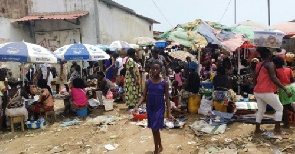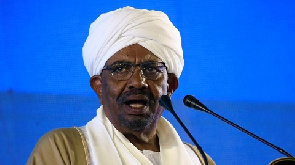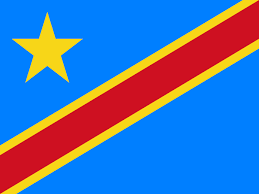In Angola’s oil region, separatists accuse president of crackdown

Since he came to power in 2017, Angolan President Joao Lourenco has promoted himself as a transparent, moderate leader keen to draw a line under the 38-year rule of Jose Eduardo dos Santos.
But in the northern oil-rich province of Cabinda, Lourenco is accused of turning the screws on separatists who say they have been targeted by a new wave of state repression.
Cabinda is a small, poor, coastal province that produces 60 percent of Angola’s oil — despite being entirely cut off from the rest of the country, sharing its borders instead with the Republic of Congo and the Democratic Republic of Congo.
In January, the security forces targeted supporters of the Independence Movement of Cabinda (MIC), a small secessionist group.
About 70 people were arrested as they prepared for a demonstration to mark the 134th anniversary of the treaty that made Cabinda a Portuguese territory in 1885.
“What the Angolan state is doing to us is persecution. The authorities treat us as terrorists,” Jeovanny Ventura, a longtime Cabinda independence activist, told AFP.
“And it has not improved under Joao Lourenco — everything we organise always ends up with supporters being taken into detention.”
With a population of 400,000, Cabinda has experienced a low-level separatist insurgency since it officially became part of Angola at independence in 1975.
The struggle has been led by FLEC (the Front for the Liberation of the Enclave of Cabinda) and fuelled by anger over the government taking huge profits from the province’s oil reserves that make Angola one of Africa’s top two producers.
– ‘Angola is doing nothing here’ –
“The people of Cabinda have never benefited from its oil,” said lawyer Arao Bula Tempo, who campaigns for independence.
“The unemployment rate is 88 percent and the infrastructure that exists dates back to colonial times — Angola is doing nothing here.”
Amnesty International and Human Rights Watch have denounced cases of torture and arbitrary detention in Cabinda.
“Unlike other parts of Angola where we have seen progress in the right to protest and in freedom of expression, the situation in Cabinda remains tense,” Zenaida Machado, Angola specialist at HRW, told AFP.
“Arbitrary arrests happen on a monthly basis.”
Driving from Cabinda city airport, the pot-holed road reveals the province’s dire plight.
The city’s roads flood every time it rains, and many neighbourhoods have no electricity, drinking water or sewage systems.
Last November, Lourenco held a rare cabinet meeting in Cabinda. “I will personally follow up on all the Cabinda projects in order to improve the situation,” he told the gathering.
For residents, such promises mean little.
“The government regularly promises new infrastructure but these are just lies,” said Carlos Vemba, general secretary of MIC.
“So our fight continues. We will do everything we can to raise awareness and fight for our independence.”
For Vemba and his fellow activists, the fight comes at a high cost — two weeks in jail for him, up to three months for others, until they are released without charge.
The government’s tactics include harassment and manhunts, all carried out by the thousands of police and soldiers deployed in Cabinda, say independence campaigners.
– Angolan soldiers killed? –
“It is catastrophic because the Angolan government does not want to talk to us,” said Alexandre Kwang N’sito of the Association for the Development of Human Rights Culture (ADCDH), a Cabinda civil rights group.
Provincial governor Eugenio Laborinho disagrees.
“I speak with all opposition parties,” he said. “I do not talk to them every day but every time they ask for an audience, I receive them.
“The situation is calm and under control. There was a bit of social unrest around unemployment but no more. Everyone says ‘FLEC, FLEC, FLEC,’ but I’ve never seen it.”
FLEC regularly claims to have killed Angolan soldiers in guerilla ambushes, but military and civilian authorities in Luanda never comment and independent verification is often impossible.
As the conflict grinds on, FLEC’s bold statements claiming victory have become rarer.
“Our will to defend Cabinda against Angolan colonisation remains intact,” insists FLEC spokesman Jean-Claude Nitza.
“We are open to dialogue, but the Luanda government does not want to negotiate a solution.”
FLEC has recently asked for a mediation process led by Felix Tshisekedi, the new president of the Democratic Republic of Congo.
That suggestion — like others in the past — has received no response from Luanda, but the separatists say they are still pushing for a breakthrough.
“I ask Lourenco to be flexible,” said Arao Bula Tempo, the lawyer. ”
If nothing is done, more Cabindans will die, and so will Angolan soldiers.”
Source: France24





